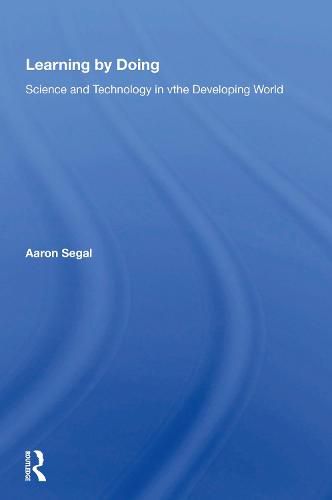Readings Newsletter
Become a Readings Member to make your shopping experience even easier.
Sign in or sign up for free!
You’re not far away from qualifying for FREE standard shipping within Australia
You’ve qualified for FREE standard shipping within Australia
The cart is loading…






Science and technology capabilities are crucial to the economic growth of developing countries and to their ability to compete in the world economy. What factors enable some countries to successfully adapt technology to create indigenous capabilities and what factors cause others to fail? In this first global survey of science and technology capabilities in developing countries, the authors examine the experiences of Africa, the Caribbean, Latin America, the Middle East, China, India, and East Asia. Specialists in science and technology policies in these regions emphasize learning by doing: using available science and technology in its various applications–the shop floor, universities, and research institutes–to eventually develop indigenous capabilities. The authors consider why such capabilities have emerged in some societies but not in others and discuss their importance for domestic and international relations. Also considered are the implications of the learning by doing process for international relations, international trade, regional studies, science and technology policy, and management studies. This unique survey will interest a large audience, from technology policymakers and regional specialists to business managers, and officials. It will serve as a reference guide to the current state of science and technology policies in every region of the world and as a framework for analyzing and understanding how science and technology capabilities are being developed.
$9.00 standard shipping within Australia
FREE standard shipping within Australia for orders over $100.00
Express & International shipping calculated at checkout
Science and technology capabilities are crucial to the economic growth of developing countries and to their ability to compete in the world economy. What factors enable some countries to successfully adapt technology to create indigenous capabilities and what factors cause others to fail? In this first global survey of science and technology capabilities in developing countries, the authors examine the experiences of Africa, the Caribbean, Latin America, the Middle East, China, India, and East Asia. Specialists in science and technology policies in these regions emphasize learning by doing: using available science and technology in its various applications–the shop floor, universities, and research institutes–to eventually develop indigenous capabilities. The authors consider why such capabilities have emerged in some societies but not in others and discuss their importance for domestic and international relations. Also considered are the implications of the learning by doing process for international relations, international trade, regional studies, science and technology policy, and management studies. This unique survey will interest a large audience, from technology policymakers and regional specialists to business managers, and officials. It will serve as a reference guide to the current state of science and technology policies in every region of the world and as a framework for analyzing and understanding how science and technology capabilities are being developed.